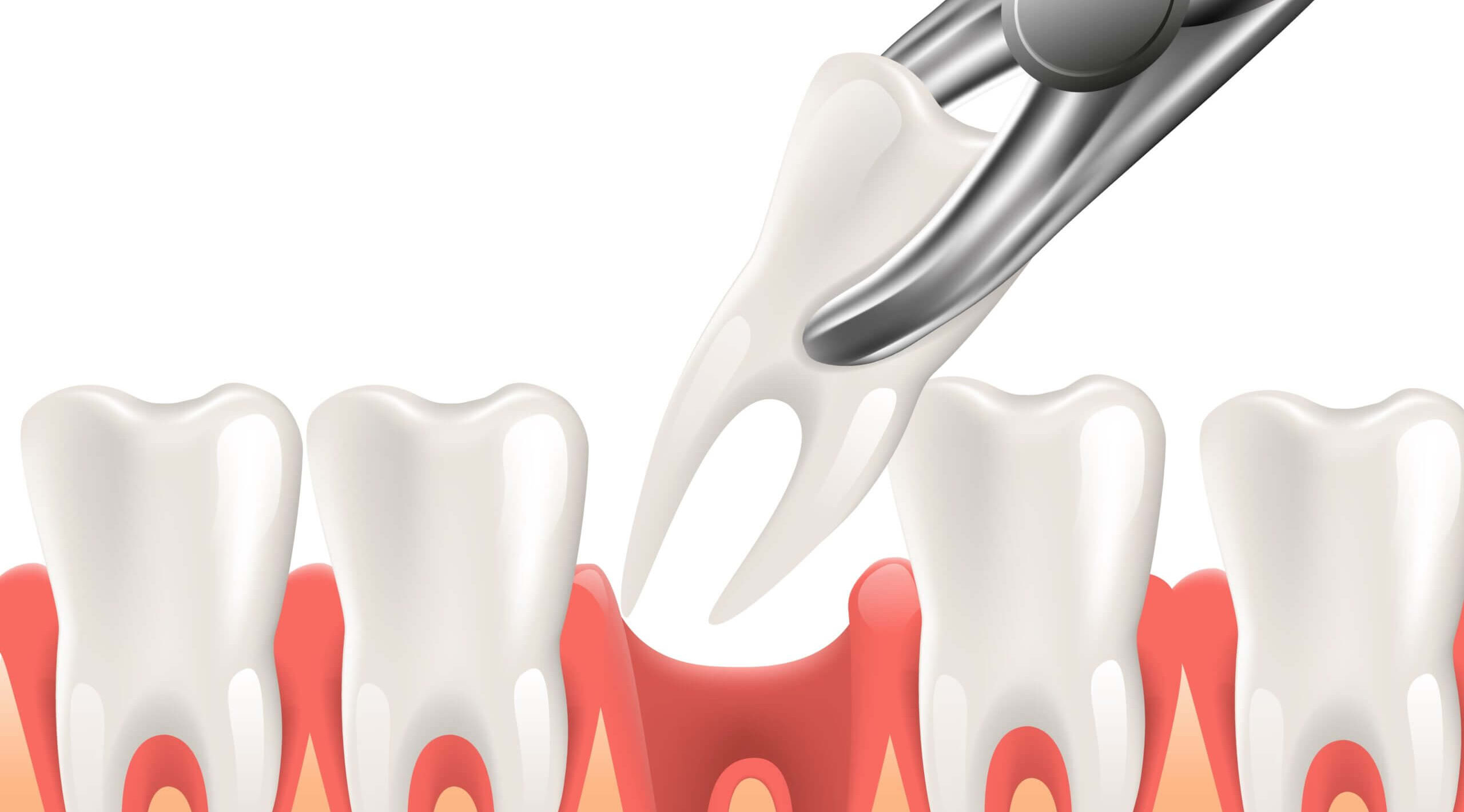Tooth Extraction
A tooth extraction , also known as tooth pulling or tooth removal may be necessary due to un-restorable fractures, dental decay, or infections. Tooth extractions can be performed by either a dentist or oral surgeon. Adult permanent teeth have roots that are designed to help keep them attached to the bone and gums. Bone density, tooth position, and other factors can make the tooth difficult to extract. Extractions may also be required to prevent the spread of tooth decay to other oral structures.Book Your Appointment
How To Prepare For A Tooth Extraction
Be honest with your dentist before the tooth extraction is performed. If you are, or ever have been diagnosed with any of the following afflictions, please alert your dentist.
- A congenital heart defect
- Diabetes
- Liver disease
- Renal disease
- Hypertension
- An artificial joint
- Damaged heart valves
- Adrenal disease
- An impaired immune system
- History of bacterial endocarditis

How Is A Tooth Extraction Performed?
Dentists use different instruments and techniques to accomplish this procedure safely and as comfortably as possible. Selecting an experienced and qualified general dentist (or specialist) is crucial to performing this procedure for you.
How Long Will A Tooth Extraction Take?
An average tooth extraction will take up to 40-60 minutes. This will depend on a number of contributing factors, such as:
- Location of the tooth (wisdom teeth removal is different from incisor removal, for example)
- If the tooth has erupted
- The difficulty of the extraction
Will I Be Given Medication For The Surgery?
- Your surgical tooth removal is expected to take a long time
- You have an infection or a weakened immune system
- You have a specific medical condition

What Is The Cost Of A Tooth Extraction?
The cost of the extraction will depend on the level of difficulty for the procedure.
Are There Any Tooth Extraction Complications?
- Bleeding that lasts longer than 12 hours
- Severe fever and chills, signaling an infection
- Chest pain and shortness of breath
- Swelling and redness at the surgical site
- Nausea or vomiting
- Coughing
- Dry socket
What Is A Dry Socket?
A dry socket happens when you have a partial or complete loss of the blood clot at the extraction site.
Dry Socket Symptoms
What Causes Dry Socket?
Dry Socket Treatment
- Flushing out the dry socket – Your dentist will flush the socket out with water to remove any food particles or other potential obstructions.
- Medicated dressings – Your dentist may use a medicated gel or paste for pain relief in the socket.
- Pain medication – If you need it, your dentist may recommend Advil, or a prescription painkiller.
- Self-care – Follow any instructions your dentist gives you very closely. If they tell you to rinse or flush the socket, do this gently.
How To Avoid Dry Socket
- Avoid tobacco products and smoking (including vaping or marijuana use).
- Drink plenty of water (try to stay away from sugary drinks during the healing process.
- Gently rinse your mouth out with salt water.
- When eating try to stay away from – Straws, hard foods, sticky foods, etc. (Try to stick to soft easy to eat foods that don’t get stuck in your teeth.
Frequently asked questions - tooth extractions
Post-extraction care may be different depending on where in your mouth the tooth was, and how difficult the procedure went. Typically you should:
- Get lots of rest.
- Drink lots of fluid.
- Saltwater rinse (half a teaspoon of salt in a small glass of water, do this very gently!)
- Do not smoke
- Eat mostly soft foods
- Avoid spitting and using straws
- Take pain relievers if necessary (please use sparingly)
Daily brushing, flossing, and mouthwash is a great start!
We recommend you never smoke! However, you should wait as long as possible to smoke after an extraction, at least 24-72 hours, (this might be a great time to quit).
After a tooth extraction, you should wait up to 3 days before brushing your teeth. For the next two weeks, be very careful and gentle around the extraction site. Being careful will promote faster recovery.
Your dentist will provide you with a gauze pad or pads after the tooth extraction. Use these until they are full of blood. DON’T spit the blood out afterword, you could dislodge the blood clot.
Once the gauze is saturated in blood, carefully remove it from your mouth. Rinse your mouth out gently (preferably, with a saltwater rinse) after removing the gauze.
Stick to soft foods, yogurts, soups, etc. Avoid using straws or applying any extra stress on the extraction site. Stick to a softer diet for 3-5 days after the extraction. Then slowly start introducing harder foods, but avoid chewing on the extracted side.
You can eat normally after about 2 weeks. Slowly introduce the food into your diet after the tooth extraction.
For most tooth extractions, general dentists should be fine. Oral surgeons are needed if there are any serious complications.
No, you will receive anesthetic so you won’t feel virtually any pain!
